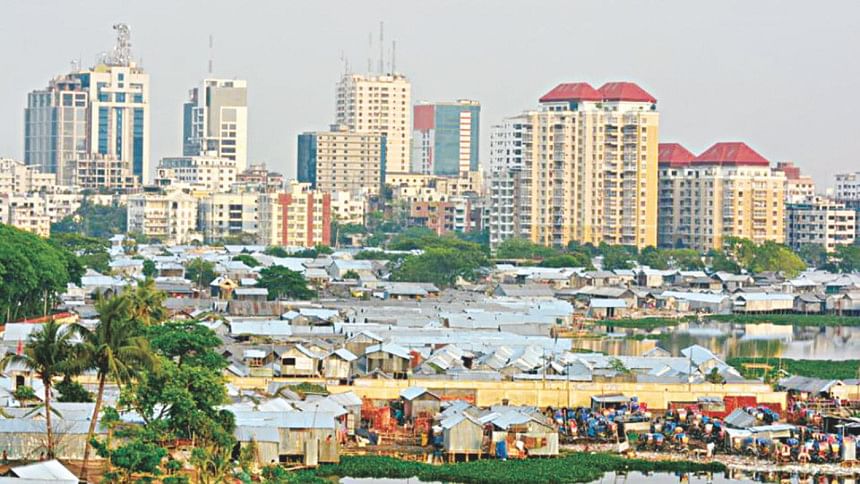The rise of tycoons in politics

According to media reports, Tabith Awal remains as BNP's man in the Dhaka North mayoral polls, while Awami League is set to choose Atiqul Islam as its candidate. One cannot help but notice that while the two major parties have enormous differences on every possible issue on earth, they have been consistently on the same page about one thing: Dhaka North's mayor should be a business tycoon.
Last time, when it was obvious that BNP was all for Abdul Awal Mintoo, a leading businessman, as its candidate, Awami League responded by nominating another wealthy businessman, Annisul Huq.
Abdul Awal Mintoo had had a long political profile before him and was reportedly keen to become Dhaka's mayor. In fact, word had it that he switched his allegiance from Awami League because the party would not nominate him as its mayoral candidate. So, after a long break, when finally Dhaka city corporation election was about to take place, there was little dispute inside BNP about his candidacy.
For Awami League, choosing Annisul Huq was like killing two birds with one stone. There was an intense race among powerful leaders to clinch the party's nomination. Some leaders, however, were more interested in preventing their rivals from securing the nomination rather than pulling it off themselves. Therefore, nominating Annisul Huq, an outsider and apolitical celebrity, was perhaps the best way to extinguish the internal blaze. Secondly, the party thought a businessman would be best-suited to tackle another businessman, as one nail drives out another. In addition, Annisul Huq had a clean image and an enviably charismatic personality—something that outweighed his businessman persona.
Mintoo was, however, declared ineligible to contest in the election at the eleventh hour due to a trivial mistake in his paperwork. BNP then said its candidate would be Mintoo's son, Tabith Awal, who was largely an unknown figure. Tabith Awal's candidacy laid bare all the pretence and made it abundantly clear that political acumen and experience never mattered in the nomination process. It was always about money.
After Annisul Huq's unexpected passing in November last year, Awami League is now reportedly counting on Atiqul Islam to fill his shoes. A former president of BGMEA, the powerful organisation representing the garment manufacturers, Atiqul is a far cry from Annisul when it comes to prominence and reputation. He has been purely a businessman and his political ambition was not known at all. Thus, his candidacy, along with Tabith Awal's, raises genuine questions as to what qualifications, apart from being super wealthy, they have to become the mayor of nearly 10 million people.
Also, how could our major political parties claim themselves to be "people-oriented" when they nominate individuals who hail from the top one percent of the society? Dhaka North does not only host nearly all affluent quarters of the capital but also the greater share of its slums, in which nearly half a million poor people live.
The choice of the two political parties is, in fact, an indictment of the country's political culture increasingly dominated by the economic elite.
We millennials are often told of an age when the country's political culture was robust and vibrant. That period gave rise to a whole bunch of leaders who came from economically poor backgrounds. Thus, politicians emerged through a process that deeply involved the ordinary people.
It was the educational institutions that used to be the ultimate avenue for those who aspired to lead the nation. The major political events that set the stage for East Pakistan to become independent were led by political and student leaders. Leaders who learnt their political lessons while fighting for people's causes. Even after Bangladesh came into being, DUCSU, we were told, used to be a platform that gave birth to a whole generation of potent political leaders.
Now, on the other hand, fighting for people's rights has become increasingly less important. No one even dares to aspire to be in a leadership position without having a strong financial backing. Maybe, that is why many were taken aback by the news that a former member of parliament from Chittagong, Mohammad Yusuf, was living in harsh conditions and suffering from chronic diseases, as he was not able to afford proper treatment. To us, a typical MP is a rich and powerful individual. Mohammad Yusuf's case, therefore, stood in stark contrast to our common perception about a high-level politician.
Yusuf served as an MP from the Communist Party until 1996 (though switching his allegiance to Awami League midway), and lately, he was living in extremely dire financial circumstances. At the height of his career, Mohammad Yusuf was said to be a formidable politician—among the five MPs elected from the decaying Communist Party in 1991—and a freedom fighter. After the prime minister intervened, the government has taken the responsibility for his treatment. But he reminds us of an era of politicians who were honest and idealistic, who fought for people's rights rather than to increase their wealth by using the power of their office.
Some may argue that, over the years, the materialistic progress of our society has been such that money now dictates all spheres of our life including politics. That is true; one needs huge money to employ a team of dedicated political or campaign operatives. The obscure and unreformed campaign financing system might have had something to do with this adulteration of politics with the lustful, greedy misuse of power. Also, our success in blocking the pathways through which young leaders used to emerge is responsible for the sad state of our political culture that has made the rise of the wealthy elite in our political scene possible.
Nazmul Ahasan is a member of the editorial team at The Daily Star.





Comments